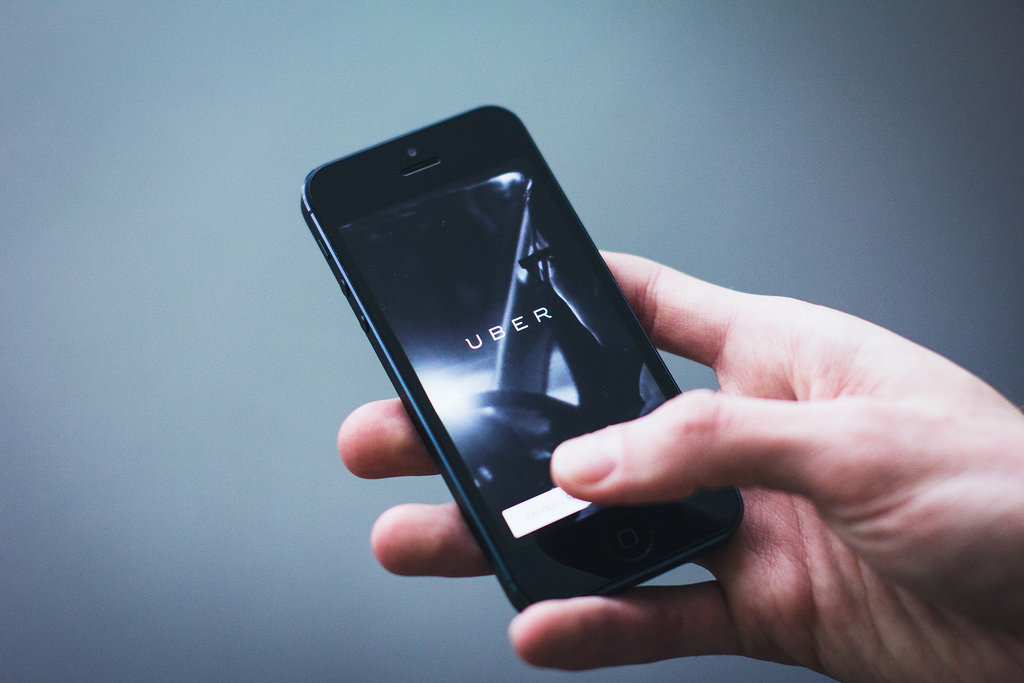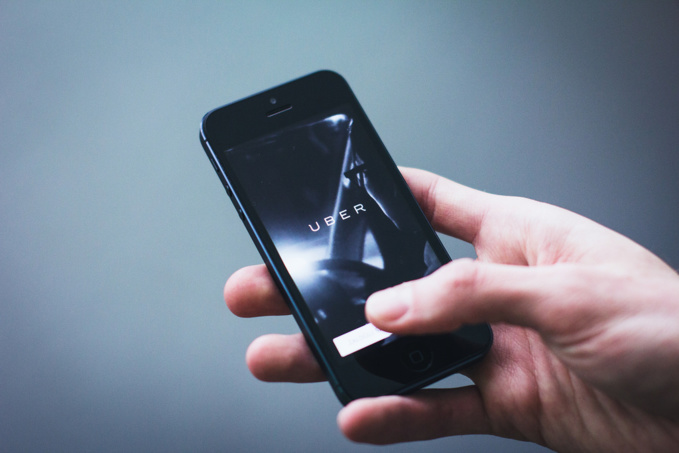Uber Technologies, creator of the taxi service, suffered losses of at least US $ 1.2 billion in the first half of 2016, Bloomberg reported, citing sources familiar with the situation.
Uber Technologies is not a public company, yet discloses its performance every three months during a conference-call with investors. According to Bloomberg, CFO of Uber Gautam Gupta told investors that the company's loss increased in the second quarter. At that, the company also suffered losses even in the US, which brought profit in the first quarter.
According to Bloomberg’s sources, in the first quarter Uber losses, excluding taxes and other charges, amounted to $ 520 million. The second-quarter brought $ 750 million losses, including $ 100 million on the company’s main market, the United States. This means that Uber’s losses in the first half of 2016 amounted to at least $ 1.27 billion, the agency said.
Bloomberg’s informant confided Gupta also told investors that the company's main item of expenditure was payments to drivers.
An official Uber representative declined to comment.
Uber has already had losses in the last year. Experts attribute this to high cost of promotion in different cities. It is expected that Uber’s net profit will reach $ 8.2 billion with a net revenue of $ 22.7 billion in 2019. According to forecasts, the company will be generating nearly $ 14 billion in net profit on the developed markets in the four years. At the same time, Uber is still not sure about its prospects in emerging markets.
Without going into details, the whole business looks promising. The company excellently optimized costs: a minimum of employees and offices, everything is done automatically, and feedback is carried out via e-mail. In this case, payments are made only to drivers on their earnings, that is, any advances are out of the question.
Indeed, Uber is a very popular in major cities throughout the world. Perhaps the losses are linked to those cities, where the service has not yet reached its peak. For example, Uber Prague has to withstand a tough competition with the old type of taxi, working through a dispatcher. Many local citizens simply do not know about existence of the company.
During six years of existence, Uber has extended the business worldwide. Often, it had to overcome resistance from local regulators and associations of taxi drivers. The company now operates in more than 60 countries. With such rapid expansion, Uber became the most expensive private company in Silicon Valley, with business estimated at $ 68 billion.
Recently, Uber sold its Chinese business to a local rival Didi Chuxing. Now, the American company is using cash reserves - more than $ 10 billion – to expand its geography. The main challenge here is insufficient number of drivers and vehicles in the taxi call system. Loans and leases would solve the problem.
Uber’s first business was built with a minimal amount of tangible assets. The company did not own cars, neither it hired drivers. Recently, this strategy has become more difficult to follow, and Uber started investing in its own fleet in some regions.
Its Singapore division Lion City Rentals already offers rental cars. Car rental for Uber in India, where lack of a centralized credit scoring system creates risks, is managed by Xchange Leasing. "For us, the borrower's score is not the main criterion, it is more important to offer cars to the greatest possible number of people", - said Amit Jain, President of Uber India. The service program leased several thousand machines since the company refused traditional credit checks in favor to review of biography of a borrower. "If someone is not able to make the next payment on the loan, he simply returns the vehicle," - says Jain.
source: bloomberg.com, ft.com
Uber Technologies is not a public company, yet discloses its performance every three months during a conference-call with investors. According to Bloomberg, CFO of Uber Gautam Gupta told investors that the company's loss increased in the second quarter. At that, the company also suffered losses even in the US, which brought profit in the first quarter.
According to Bloomberg’s sources, in the first quarter Uber losses, excluding taxes and other charges, amounted to $ 520 million. The second-quarter brought $ 750 million losses, including $ 100 million on the company’s main market, the United States. This means that Uber’s losses in the first half of 2016 amounted to at least $ 1.27 billion, the agency said.
Bloomberg’s informant confided Gupta also told investors that the company's main item of expenditure was payments to drivers.
An official Uber representative declined to comment.
Uber has already had losses in the last year. Experts attribute this to high cost of promotion in different cities. It is expected that Uber’s net profit will reach $ 8.2 billion with a net revenue of $ 22.7 billion in 2019. According to forecasts, the company will be generating nearly $ 14 billion in net profit on the developed markets in the four years. At the same time, Uber is still not sure about its prospects in emerging markets.
Without going into details, the whole business looks promising. The company excellently optimized costs: a minimum of employees and offices, everything is done automatically, and feedback is carried out via e-mail. In this case, payments are made only to drivers on their earnings, that is, any advances are out of the question.
Indeed, Uber is a very popular in major cities throughout the world. Perhaps the losses are linked to those cities, where the service has not yet reached its peak. For example, Uber Prague has to withstand a tough competition with the old type of taxi, working through a dispatcher. Many local citizens simply do not know about existence of the company.
During six years of existence, Uber has extended the business worldwide. Often, it had to overcome resistance from local regulators and associations of taxi drivers. The company now operates in more than 60 countries. With such rapid expansion, Uber became the most expensive private company in Silicon Valley, with business estimated at $ 68 billion.
Recently, Uber sold its Chinese business to a local rival Didi Chuxing. Now, the American company is using cash reserves - more than $ 10 billion – to expand its geography. The main challenge here is insufficient number of drivers and vehicles in the taxi call system. Loans and leases would solve the problem.
Uber’s first business was built with a minimal amount of tangible assets. The company did not own cars, neither it hired drivers. Recently, this strategy has become more difficult to follow, and Uber started investing in its own fleet in some regions.
Its Singapore division Lion City Rentals already offers rental cars. Car rental for Uber in India, where lack of a centralized credit scoring system creates risks, is managed by Xchange Leasing. "For us, the borrower's score is not the main criterion, it is more important to offer cars to the greatest possible number of people", - said Amit Jain, President of Uber India. The service program leased several thousand machines since the company refused traditional credit checks in favor to review of biography of a borrower. "If someone is not able to make the next payment on the loan, he simply returns the vehicle," - says Jain.
source: bloomberg.com, ft.com



















